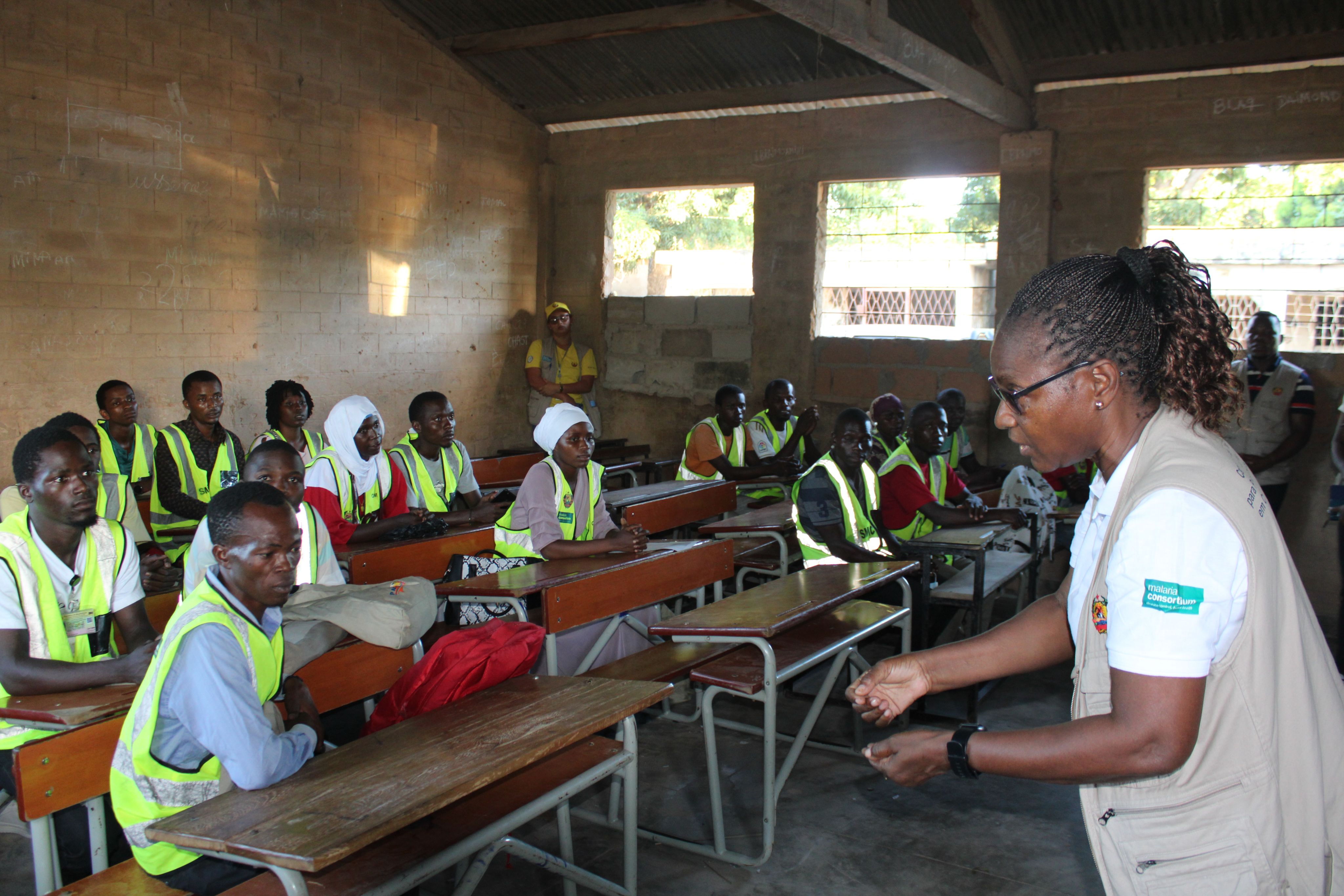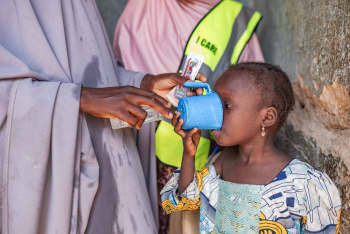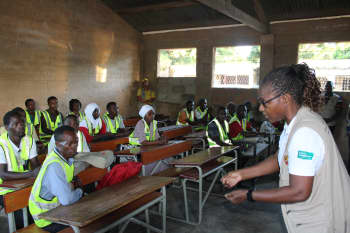What your support has helped us to achieve
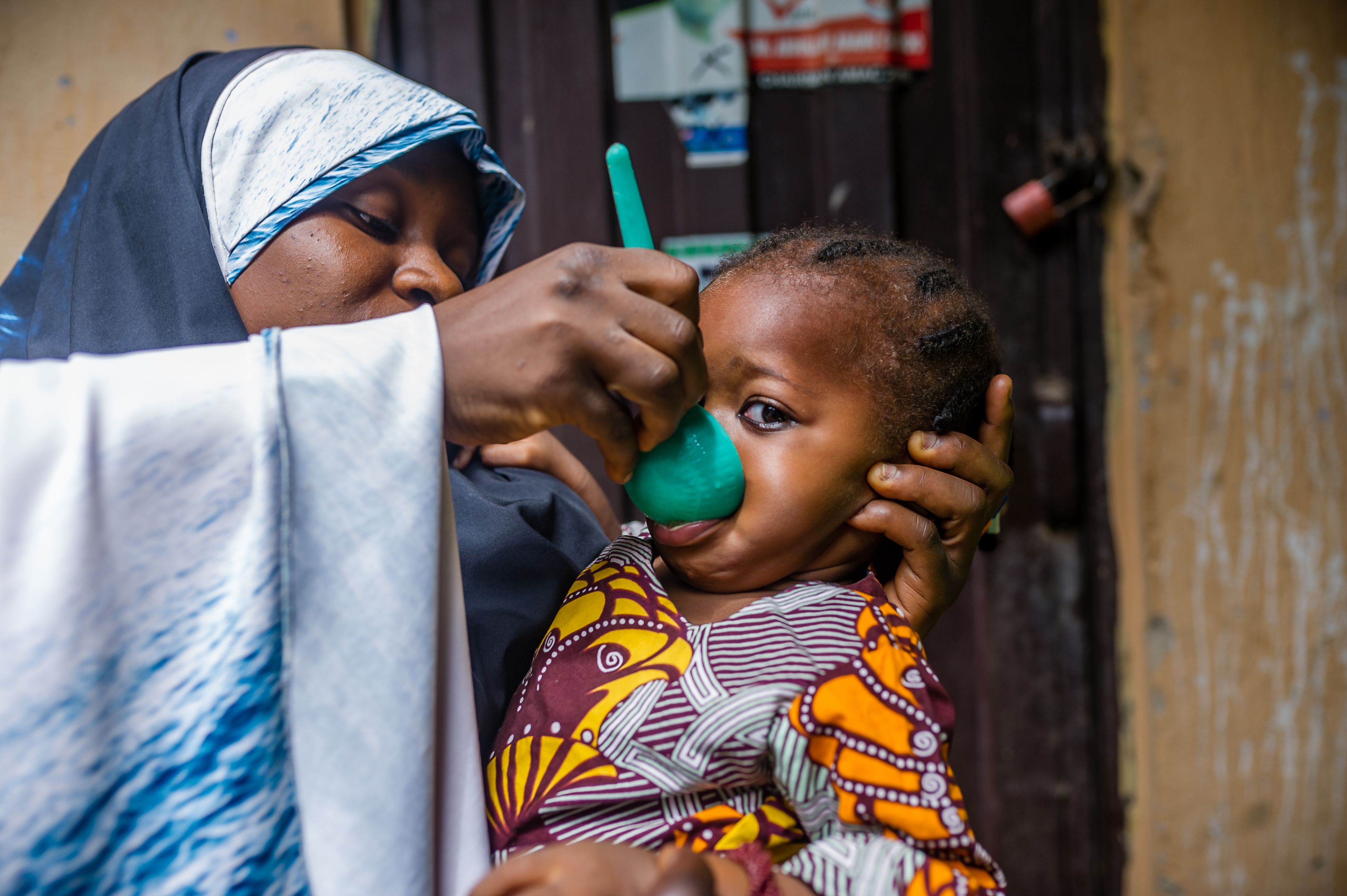
Your support saves lives and improves health, reaching communities with the care they need to thrive. Thanks to philanthropic donations, we’ve delivered essential medicines and health commodities to people particularly vulnerable to disease and to those with limited access to healthcare services.
Your generosity has also helped us train health workers, improve disease diagnostics and surveillance and expand access to regular, high-quality healthcare. By empowering communities through education and engagement, we not only prevent illness but also address the social and economic burdens of disease, ensuring no one is left behind. Thank you for helping us build healthier, more resilient societies.
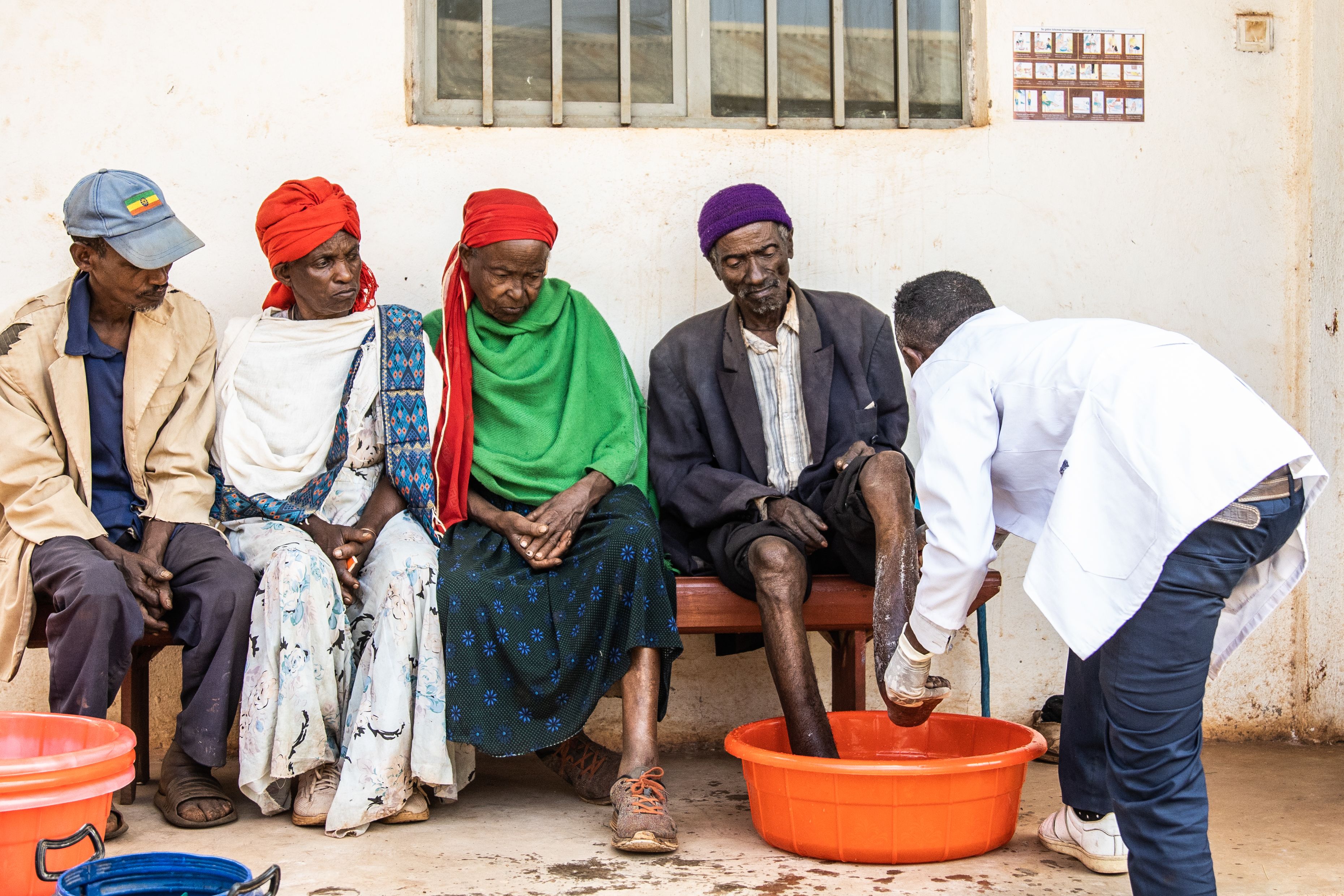
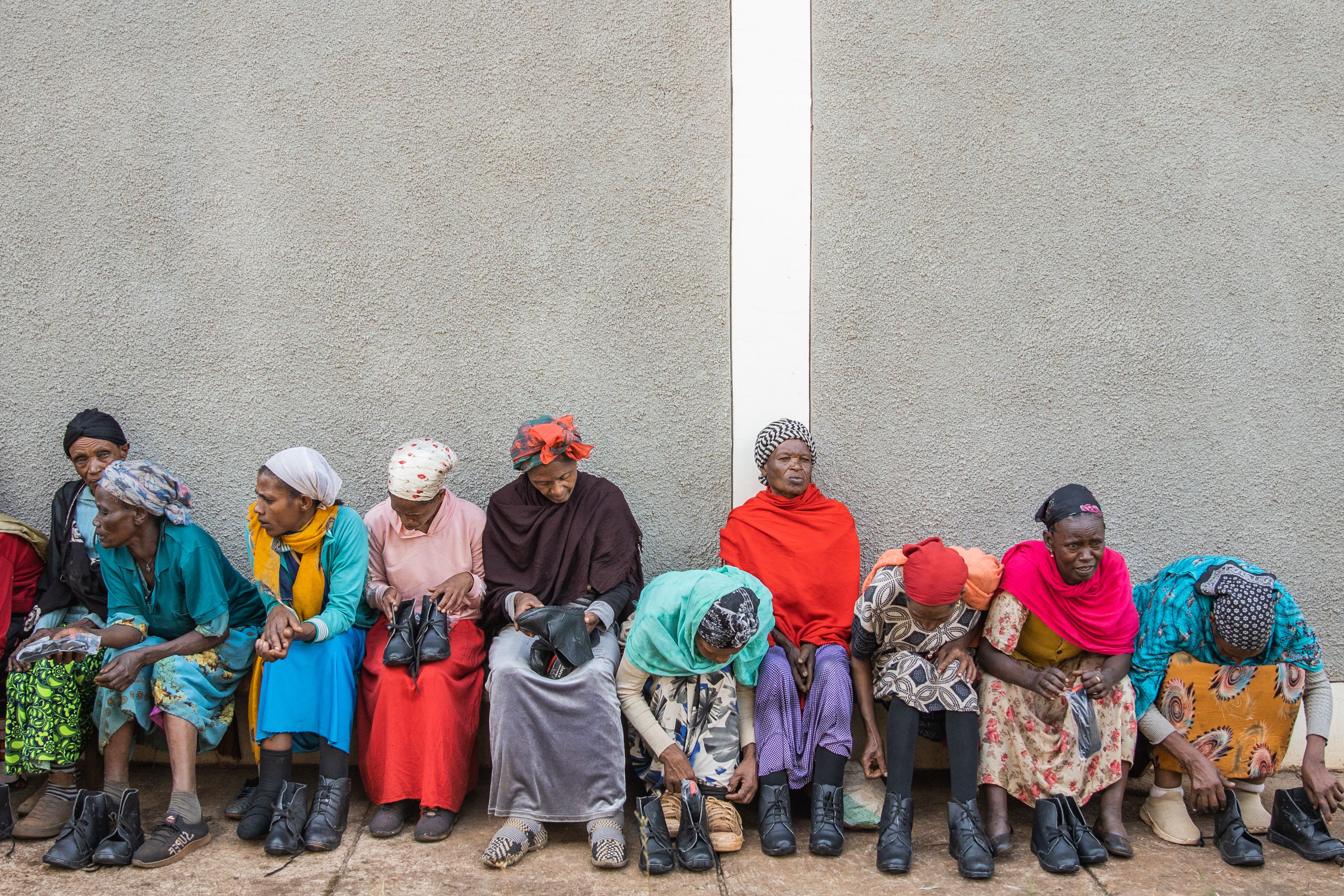
Holistic wellness: Making a difference to mental health and wellbeing
PROJECT SPOTLIGHT
Happy Feet
Mental health and wellbeing are integral components of overall health outcomes, influencing emotional and psychological resilience as well as physical health and quality of life.
Through Happy Feet, led by Malaria Consortium and funded by philanthropic funding through Malaria Consortium US, communities and health workers are seeing the benefits of targeted advocacy and community engagement to tackle podoconiosis. This neglected tropical disease affects resource-limited individuals who lack access to shoes. Over time, exposure of their bare feet to irritants found in red clay soils leads to disabling swelling of the lower leg. We are addressing severe physical, economic and psychological implications for those affected.
Aberash, a public health officer working in the Sodo Zuria district, now feels she can improve the quality of life of her patients who have podoconiosis.
“We were unable to provide psychosocial and economic rehabilitation due to a lack of technical knowledge and skills...
“Fortunately, thanks to Malaria Consortium, I was able to receive [this] training. I learned about informational gaps, psychological problems, social relationship problems, and economic gaps, as well as how to provide solutions for each gap based on the capabilities of health centres and health experts.
“As a result, this programme improved my knowledge and skills in counselling, listening, problem identification, and problem-solving discussions.”
Lenkere's story
“My leg started to itch and became red and swollen. I put it near the fire to reduce the itching pain but it continued to itch. My skin became crusty and started to fall off. My social life has suffered because of this issue. I used to envy other people walking around.
“I am happy because I am using the towels, shoes, Vaseline (petroleum jelly) and soap that I got from the organisation. After the treatment, I was able to walk unassisted.
“Now, I can go to the market and social gatherings. Because I learned that the disease is caused by walking barefoot on red soil, I educate everyone to always wear shoes.”
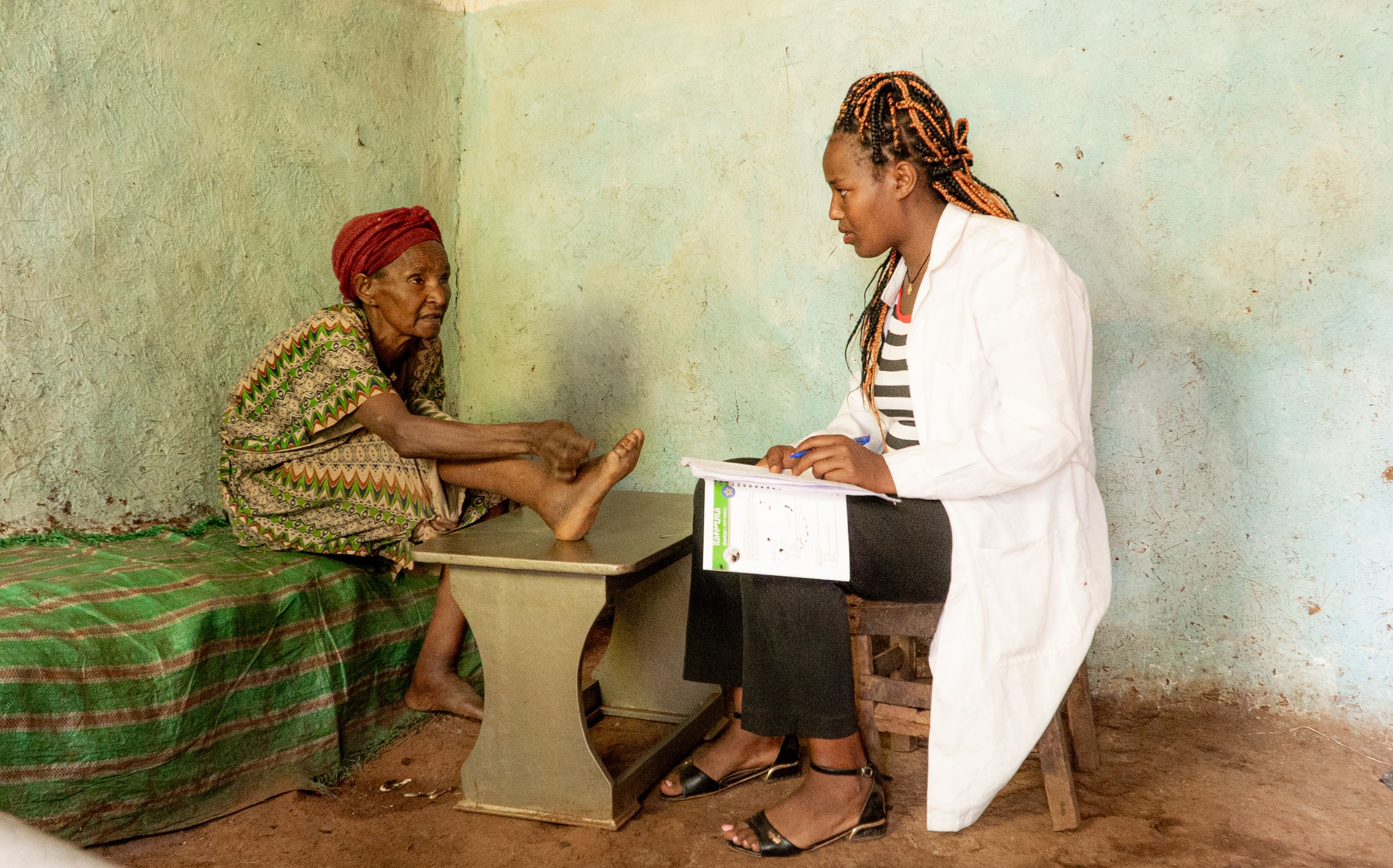
Preventing malaria in children:
Seasonal malaria chemoprevention
Malaria Consortium has been recognised as a GiveWell Top Charity since 2017, as an organisation that delivers maximum impact through our seasonal malaria chemoprevention (SMC) programme. Our SMC work is based on strong evidence and demonstrates high cost-effectiveness, and we play a leading role in supporting large-scale SMC programmes in Burkina Faso, Chad, Mozambique, Nigeria, South Sudan, Togo and Uganda. In 2024, we are providing technical assistance to Côte d’Ivoire to implement SMC, and continue to undertake and publish new research to inform SMC policy and practice.
“SMC’s transformative strength has been a revolutionary force in our fight against malaria. Its impact has been so profound that malaria, once a common illness among our children in our community, has now become a rarity.”
25 million
children reached with SMC in 2023
Reaching Karamoja’s nomadic populations
Malaria Consortium’s work in Karamoja subregion, Uganda, serves as a model for malaria prevention in nomadic and hard-to-reach populations globally, who often struggle to access fixed-point healthcare delivery. To address the logistically complex challenge of delivering SMC to predominantly nomadic pastoralist populations, we adapted the door-to-door SMC delivery models to suit the nomadic lifestyle of the Karamojong people, illustrating how adaptable, community-centric approaches can overcome the complex and context-specific challenges.
We mobilised trained community health workers supported by local health authorities and cultural leaders — also known as manyata leaders. Their familiarity with nomadic migration patterns and skill in navigating the challenging landscapes enabled them to work alongside the nomadic population to inform and administer SMC medicines.
>90%
coverage achieved
“I have never seen any child of mine suffer from malaria since the VHTs [village health teams] started giving our children SMC drugs.”
Community health worker, Uganda
Community health worker, Uganda
40% of children receiving SMC were under-vaccinated
and connected to vaccine services for follow-up
Increasing access to essential childhood vaccines
To ensure that life-saving vaccines are reaching as many children as possible, we’re leveraging the strengths of the SMC programme, which consistently reaches a substantial number of children in their households each year.
In Togo, we are identifying unvaccinated children (known as ‘zero-dose’ children) and catching-up under-vaccinated children with missing vaccine doses during SMC distribution. Working with national malaria programmes and the Essential Programme on Immunisation, we are delivering targeted strategies to increase access to essential childhood vaccines that protect against preventable diseases, including diphtheria, pertussis and tetanus. We will use the evidence to advocate for political attention and resources, which could have a profound positive impact on child survival.
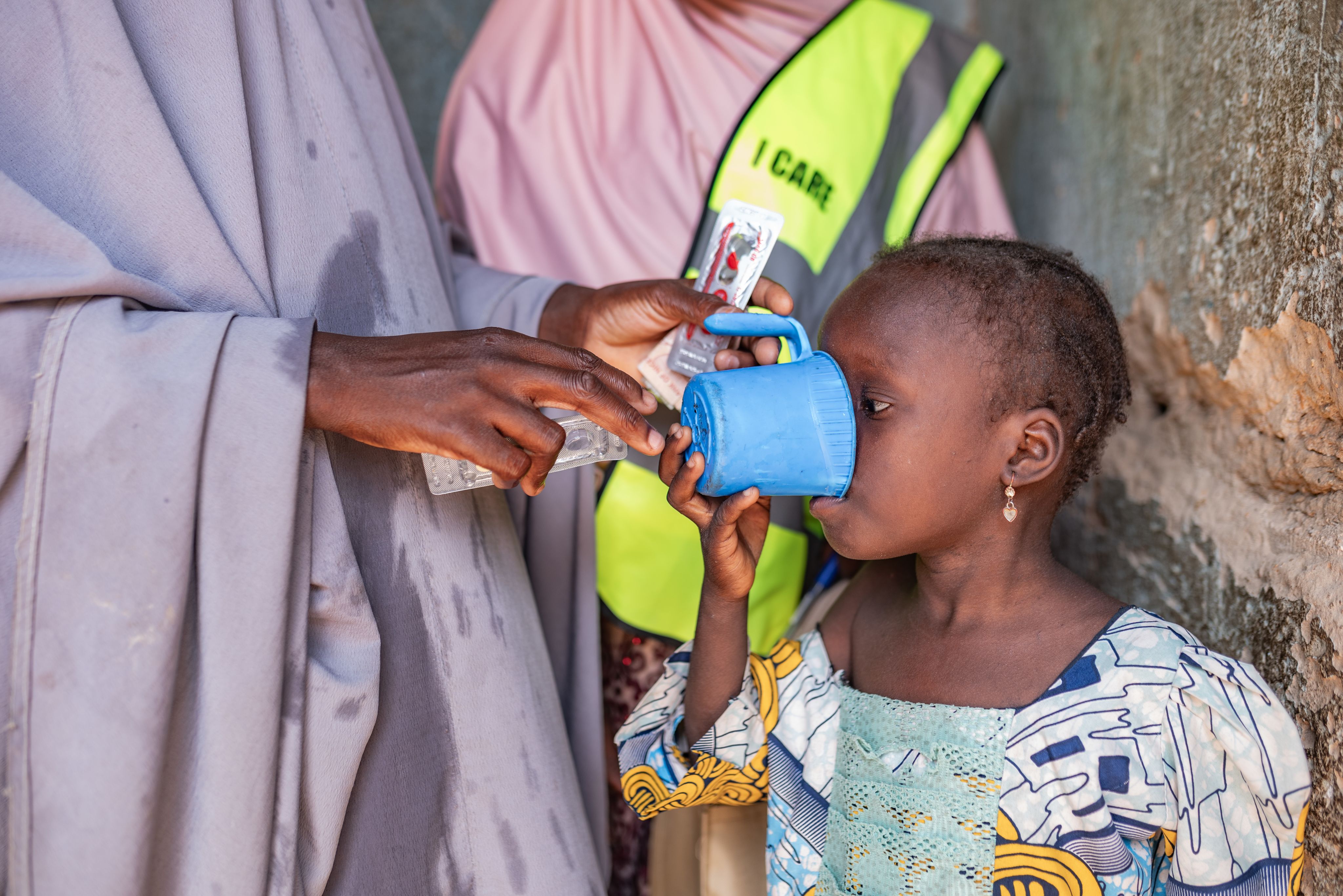
Combining research and innovation to scale up SMC in Mozambique
Based on Malaria Consortium’s rigorous research and technical guidance, Mozambique, South Sudan and Uganda led the way in conducting SMC implementation studies outside of the Sahel, to evaluate the acceptability, feasibility and effectiveness of SMC with a view to scaling up. In January 2023, Mozambique became the first country outside of the Sahel to implement SMC, with Malaria Consortium supporting the scale-up to all 23 districts in Nampula province and reaching 1.48 million children — including internally displaced persons from neighbouring Cabo Delgado province. This scale was maintained during the 2023/24 SMC round.
5,198,685
SMC treatments distributed in round 1 of SMC
1.5 million
children reached in round 1
Healthcare worker completes paperwork during seasonal malaria chemoprevention (SMC) administration
Healthcare worker completes paperwork during seasonal malaria chemoprevention (SMC) administration
Raising awareness of seasonal malaria chemoprevention
Raising awareness of seasonal malaria chemoprevention
Digitalisation
Digital tools can transform the way that mass health campaigns like SMC and insecticide-treated nets are delivered, reaching more people with essential care and services.
In Mozambique, we’ve partnered with the National Malaria Control Programme, Bill & Melinda Gates Foundation and eGovernments (eGov) Foundation to develop a digital SMC tool using eGov’s DIGIT health campaign management platform in Mozambique. This free, open-source product uses configurable building blocks, which means it can be adapted and scaled for campaigns across multiple diseases. This platform, known locally as Salama, was deployed from February 2024, with all community distributors across Nampula using the platform for data collection throughout the SMC campaign. This digitised approach enabled us to capture, record and analyse data more efficiently and effectively, and enabled supervisors to monitor and support community distributors’ progress during SMC campaigns.
Octavio, a district supervisor for SMC in Ilha de Mocambique district, Mozambique, used the Salama app during the 2024 SMC rounds:
“This is my second year as a supervisor on the SMC campaign here. But this has been the first year we are using an app to understand how the work is going.
Last year, we worked with paper and we would stay behind at the end of the day to see the totals of households reached. This year, we can see the number all the time and make decisions based on the data.”
In Nigeria, we tested a digital solution during SMC delivery in the Federal Capital Territory and Oyo state, in which community distributors and health workers used their personal mobile devices to digitally record registration of households and individuals, and antimalarial administration data. Overall, the approach promises to be cost-effective and sustainable, eliminating the need to procure and maintain large quantities of mobile devices — though there are challenges to consider. The learning generated from this and other digitalisation initiatives will inform future health campaign digitalisation efforts in Nigeria.
